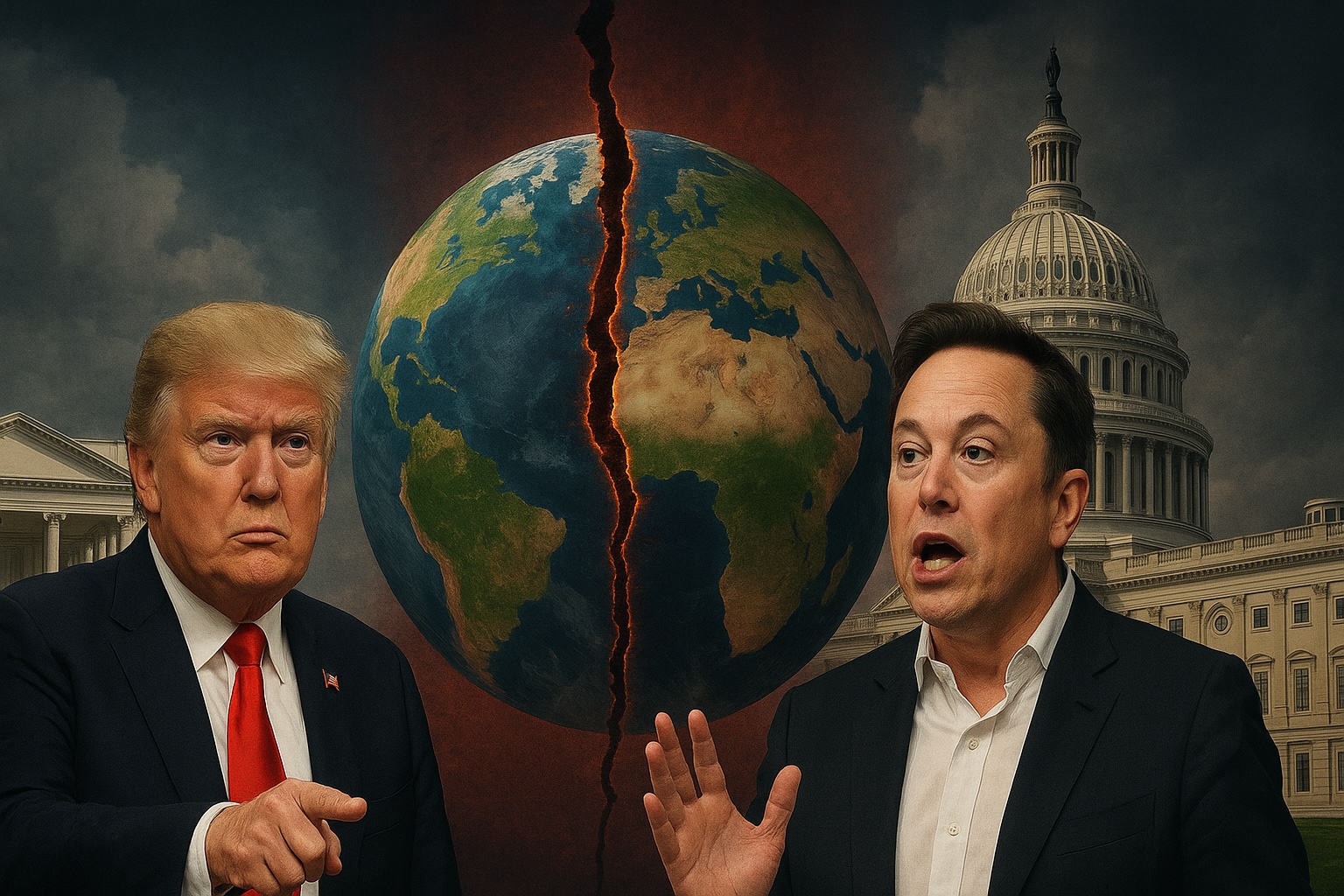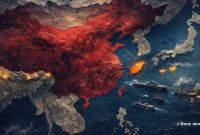From Allies to Enemies: Trump Threatens Musk, Tesla Tanks — Who Really Runs America?

Washington D.C. — In an era marked by shifting alliances, fragile global cooperation, and heightened domestic polarization, the United States under President Donald Trump finds itself both a disrupter and a divided power. Internally, Trump’s second term has brought aggressive institutional overhauls, cultural pushbacks, and power centralization. Internationally, the administration's retreat from multilateralism is redefining traditional alliances. Yet, among the many headlines, one rupture stands out as particularly emblematic of the moment: the public and bitter falling-out between Trump and tech titan Elon Musk.
Domestic Disruptions: Power Consolidation and Cultural Battles
In Washington, the Trump administration has launched a sweeping crusade against what it calls "the deep state," slashing thousands of federal jobs and dismantling long-standing institutions such as the Department of Education and the Consumer Financial Protection Bureau. Trump’s controversial Executive Order 14190 seeks to “end radical indoctrination in schools,” banning teachings on gender identity and critical race theory, while simultaneously pushing patriotic curricula through the reinstated 1776 Commission.
Immigration crackdowns are back with force, including an attempt to revoke birthright citizenship—though blocked by the courts—while the dismantling of DEI (Diversity, Equity, Inclusion) offices has ignited fierce protests nationwide. These moves reflect a broader ideological reengineering of the federal government, one aimed at reversing decades of progressive policymaking.
What stands out, however, is the unusually direct and personalized style of governance. Policies are announced via executive orders, often accompanied by scathing commentaries against opponents—political or corporate.
Fractured Foreign Affairs: From Global Leader to Global Gambler
On the world stage, Trump has turned his back on international cooperation. The U.S. has exited the Paris Agreement—again—and cut ties with the World Health Organization. Sanctions have been reimposed not just on adversaries like Iran and North Korea, but also against figures from international legal institutions such as the International Criminal Court.
European leaders, long skeptical of Trump’s America First rhetoric, are now acting on that skepticism. Germany and France are advancing their own defense mechanisms under the guise of “strategic autonomy,” openly preparing for a world where the U.S. is no longer a reliable ally. Meanwhile, China and Russia are exploiting the vacuum, making deeper inroads into Africa, Southeast Asia, and even Latin America.
What’s unusual here is not that America is asserting dominance—but that it’s withdrawing unpredictably, breaking pacts and traditions, not to achieve isolation, but to command unilateral leverage.
Trump vs. Musk: A Fall From Alliance to Warfare
Nowhere is this new, volatile political atmosphere more visible than in the unexpected and public feud between President Trump and Elon Musk. Once perceived as unlikely allies—two billionaire populists with mass followings—Trump and Musk are now locked in a bitter power struggle with national and global implications.
The feud began when Musk harshly criticized Trump’s “One Big Beautiful Bill Act,” calling it fiscally irresponsible and “an abomination” for gutting clean energy subsidies. In a rare political move, Musk even tacitly endorsed a social media call for Trump’s impeachment and replacement by Vice President JD Vance.
Trump’s response was swift and characteristically explosive. He accused Musk of betrayal, mocked him as “mentally unstable,” and hinted that federal contracts with Tesla and SpaceX could be at risk. Musk escalated further, cryptically suggesting Trump’s name was buried in unreleased Epstein files, stoking conspiracy fires.
The implications are staggering. Tesla’s valuation dropped by $138 billion in just a few days. SpaceX, which holds critical NASA contracts, may now find itself sidelined. More profoundly, the feud has divided the GOP’s economic base—between loyalists to Trump and tech-optimists aligned with Musk.
The unusual part? Musk is not a politician. But in today’s America, the lines between corporate power and political clout have blurred so much that a business magnate publicly threatening the President is no longer shocking—it’s strategic.
What This Means for the U.S. and the World
The Trump-Musk clash underscores a deeper dislocation in American political culture: the disintegration of traditional power hierarchies. It’s no longer just Washington vs. the world—it’s Washington vs. Wall Street, vs. Silicon Valley, vs. itself.
For global observers, this is more than a celebrity spat. It reveals the fragility of American consensus and the dangers of personalization in policy. As the U.S. government grows more autocratic in tone and erratic in action, allies are hedging, enemies are watching, and citizens are dividing into warring camps of loyalty.
In the end, what’s most unusual is not the feud itself—but how ordinary it now feels in a political climate where the unimaginable becomes policy, and the personal becomes global.
Reported by Nepal Aaja’s U.S. Bureau
Donald Trump Elon Musk



![From Kathmandu to the World: How Excel Students Are Winning Big [Admission Open]](https://www.nepalaaja.com/img/70194/medium/excel-college-info-eng-nep-2342.jpg)
